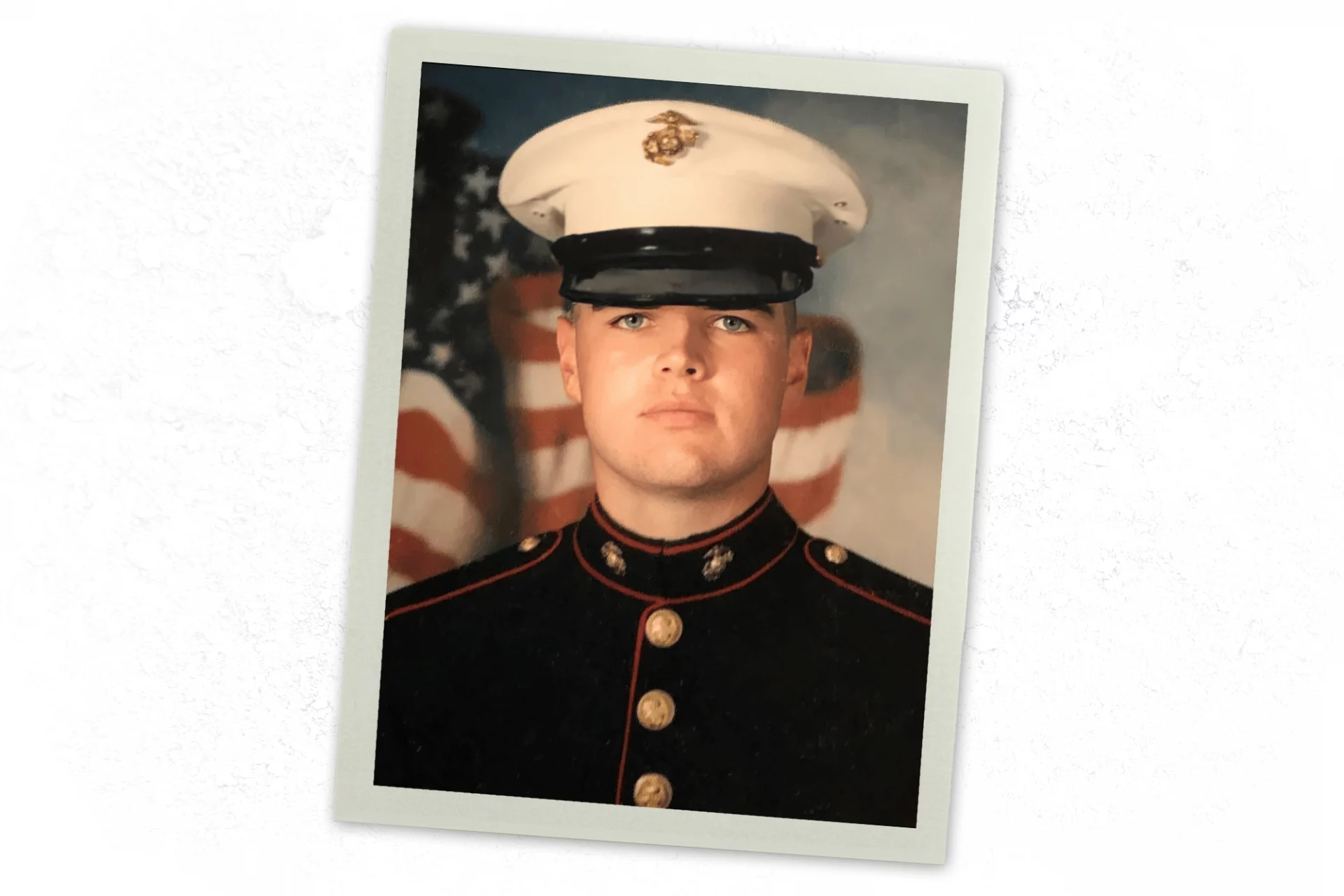The vice president’s four years in the Marine Corps planted the seeds of his populism — and his pursuit of power.
In August 2005, a 21-year-old Marine named James David Hamel arrived at Al-Asad Airbase in western Iraq. Hamel was a combat correspondent, and he had been deployed to Al-Asad as part of a public affairs team from the 2nd Marine Aircraft Wing. His job for the next six months was to embed with soldiers at the base, documenting their missions in short articles for military publications and local papers back in the U.S. During assignments that took him “outside the wire,” as the troops called the areas beyond the boundaries of the base, he would carry a notebook, a camera and a rifle, just in case.
A few years earlier, this assignment would have thrilled Hamel, a bookish teenager from southwestern Ohio who had enlisted in the Marines with dreams of “heading to the Middle East to kill terrorists,” as he would later write. But now, two years into his enlistment, his faith in the American mission was flagging. During a stopover at a military base in Kuwait en route to Iraq, Hamel and a fellow public affairs Marine had overheard a conversation in the base’s chow hall between a group of lieutenants. After two and a half years of fighting in Iraq, one of the lieutenants said, the mission on the ground was stalling out. As soon as American troops cleared Iraqi insurgents from one region, those same insurgents would retake the same area.

